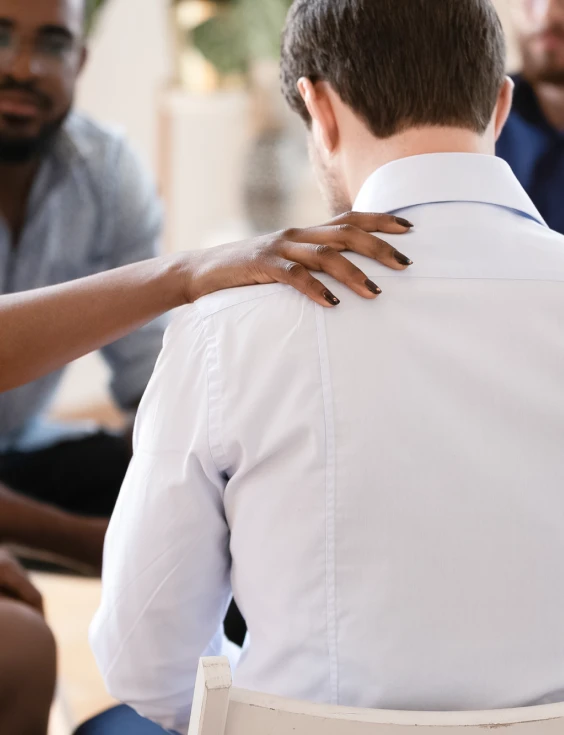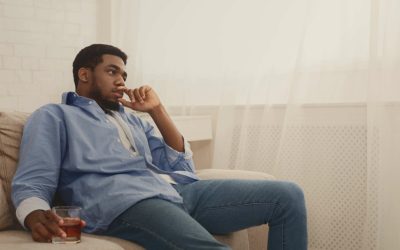While these improvements may be subtle, they are the first indicators of the body’s healing process. Alcohol can have a detrimental impact on sleep, but these problems can also persist once you decide to stop drinking. Finding ways to cope with insomnia and other sleep issues is important since poor sleep can be a risk factor for alcohol relapse. Heavy drinking can make the sleep- and circadian rhythm-disrupting effects of alcohol worse. But even a regular, moderate routine of two to three drinks a day is enough to create sleep and performance problems for many people.

How to Fall Asleep After Drinking
However, it is crucial to have a rough timeline in mind to get an idea of what to expect. Alcohol withdrawal can be an emotionally turbulent period for many. The ascent on the anxiety and stress scale during this phase is a common observation. Now, link this fact to another – stress and anxiety are known adversaries of a good night’s sleep.
- Drinking alcohol relaxes the muscles around your throat, making you more likely to snore too.
- Turning off your alarm clock the morning after a bout of insomnia is super tempting — especially if you have the luxury of extra time to stay in bed.
- They range from mild to severe and often include insomnia or disrupted sleep patterns.
- Walker refers to REM as “overnight therapy” and “emotional first-aid” because of its powerful influence on emotional reactivity, anxiety, fear, and mood.
- There are many medications used to treat insomnia, including benzodiazepine and nonbenzodiazepine medications.
- I know this because I’m now an average person who has occasional insomnia.
How to Quit Smoking Weed
Studies estimate that 36–91% of people experiencing alcohol dependence may have insomnia. Generally, females and older adults are at a higher risk for insomnia. Individuals with mental health conditions are also more likely to develop insomnia. In this study, we used PASW SPSS Statistics ver. 18.0 (SPSS Inc., Chicago, IL, USA) for statistical analyses with significance level set at less than 0.05 for all statistical operations. We performed chi-square tests and independent sample t-tests to assess gender differences in initial reports of underlying disease, smoking status, exercise frequency, depressive symptoms, and anxiety symptoms. We used the Wilcoxon two-sample test to assess gender differences in AUDIT-KR scores.
Health topics
There are also some relapse-prevention medications that can help promote sleep. The liver acts as a filtering system for the body, helping metabolize food and chemicals (including alcohol itself), and pulling toxins from the bloodstream. Like nearly all of the body’s organs, the liver functions according to circadian rhythms. Alcohol interferes with these circadian rhythms regulating the liver, and can contribute to compromised liver function, liver toxicity, and disease. At the beginning of the NREM cycle, within seconds to just a few minutes after nodding off, alpha and theta brain waves cause eye movement to slow down. This is a stage of light sleep where the individual can be easily woken.

These sleep issues can include insomnia, disrupted sleep patterns, sleep apnea, or other sleep-disordered breathing. SAMHSA statistics indicate such sleep problems can last weeks, months, or even years after drinking stops. Chronic insomnia is a recurring difficulty in falling or staying asleep, persisting for at least three months. Although sleep disturbances are common during alcohol detox, ongoing problems hint at more severe issues.
Good sleep hygiene will help you fall asleep faster and stay asleep longer, so you don’t need to have something before bed for sleep. We’ve covered more on the effects of alcohol on your sleep here, including why it’s not actually a good sleep aid, despite the drowsiness you might feel. Whether you’re a casual drinker or experiencing alcohol abuse problems, you can break the habit and start falling asleep without needing a drink first. Dr. Iatridis says it’s important to stop drinking at least four hours before bed to prevent sleep disruption. After a few hours of sleep, alcohol can cause you to wake up and have a difficult time going back to sleep. Insomnia is also common among people who have an alcohol use disorder, but the problem can persist or even begin during recovery.
Stayingphysically activeduring the day can help you fall asleep at night, as well as promote overall health. Shaking this addiction and learning to sleep without alcohol can be difficult. i can’t sleep when i drink alcohol The idea of attempting to sleep without alcohol can causeanxiety, which can lead to more drinking, perpetuating the cycle of alcohol abuse.
- Have a few glasses of wine at dinner, and nurse a drink or two at the bar.
- Sleep disorders like insomnia can co-occur with alcohol abuse, and treating insomnia can improve a person’s sleep quality while in recovery.
- They may turn to alcohol to reduce their anxiety symptoms, which also increases insomnia, exacerbating their anxious feelings.
- Men with higher AUDIT-KR scores tended to suffer from poor sleep quality.
- This REM sleep rebound can be disruptive, leading to more fragmented sleep and daytime fatigue.
There are also several steps you can take to improve your quality of sleep and quality of life. Some you can adopt on your own, and some are under the supervision of a health professional. Support groups play an invaluable role in managing insomnia following alcohol cessation. These safe spaces offer emotional backing, shared experiences, coping strategies, and education about insomnia. Communicating with individuals experiencing similar issues can provide a sense of communal sharing, reducing feelings of isolation and promoting positivity. Remember, these are averages based on research and does not apply uniformly to every individual experiencing insomnia after quitting alcohol.
How we reviewed this article:
Therefore, the objective of this article is to provide an update on the link between alcohol intake and obesity. Furthermore, factors that may explain the conflicting findings in this research area are discussed. Finally, recommendations for future research are provided to promote a better understanding of the possible obesity-promoting effects of energy intake from alcohol. Some people may reach for a glass of wine to help them fall asleep before bed, but Khosla says that’s only a temporary solution.
If you’re seeking help for yourself or a loved one, our expert team is here to guide you every step of the way. To combat the eventual alcohol-related headache and fight off the early effects of a hangover, take a small dose of ibuprofen when you get home. Stay away from Tylenol or other acetaminophen-based medicines as they can damage your liver when mixed with alcohol. Before you take your first sip of alcohol, make sure you’ve had a solid, balanced meal to help regulate your body’s absorption of alcohol.